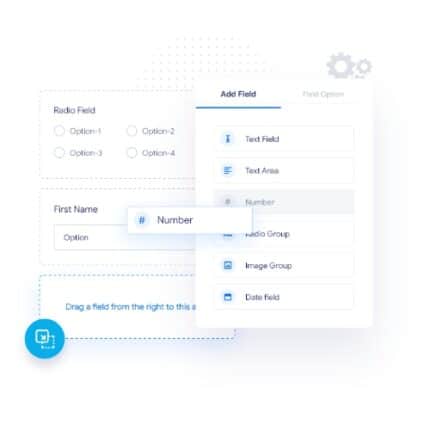Blog
In today’s corporate world, employee surveillance has become a hot topic, especially as companies seek to balance productivity with privacy. AT&T’s recent decision to reduce office surveillance is a significant move that resonates with many employees feeling overwhelmed by monitoring practices. If you’re curious about the implications of this shift and what it means for workplace dynamics, you’re in the right place. In this article, we’ll delve into the details of AT&T’s decision, its potential impact on employees, and broader trends in workplace privacy.
Understanding AT&T’s Shift in Surveillance Practices
The Background
As a major telecommunications provider, AT&T has historically employed various surveillance methods to monitor employee performance and ensure productivity. However, growing employee frustration, coupled with a push for a healthier work environment, has led the company to reevaluate its approach.
Why Reduce Surveillance?
Employee Well-Being
One of the core reasons for scaling back surveillance is to promote a healthier workplace culture. Continuous monitoring can create a sense of anxiety and distrust among employees, leading to decreased morale and productivity. By lessening these surveillance measures, AT&T aims to foster an environment where employees feel more valued and trusted, which can, in turn, enhance overall job satisfaction.
Building Trust
Trust is a foundational element in any successful organization. Heavy surveillance can undermine this trust and create barriers between management and employees. By reducing surveillance, AT&T is signaling its commitment to a more open and trusting workplace, which can lead to increased engagement and loyalty among employees.
Broader Trends in Workplace Surveillance
The Rise of Employee Monitoring
While AT&T is taking steps back, many companies continue to embrace employee surveillance technologies. These tools often aim to maximize productivity but can lead to ethical dilemmas. As businesses navigate this complex landscape, there’s a growing conversation around finding the right balance between monitoring and respecting employee privacy.
Legal and Ethical Considerations
As companies adopt surveillance technologies, they must also consider legal implications. In many jurisdictions, laws govern how and when employers can monitor their employees. It’s crucial for businesses to stay informed and comply with these regulations to avoid potential legal fallout.
Insights on Employee Surveillance
Pros and Cons
-
Advantages:
- Improved productivity metrics.
- Enhanced security for sensitive information.
- Drawbacks:
- Increased employee stress and anxiety.
- Potential for damaged workplace relationships.
Tips for Companies Considering Surveillance
- Evaluate Necessity: Assess whether monitoring is essential for your business goals.
- Communicate Openly: Keep employees informed about any surveillance practices and their purposes.
- Balance Trust and Accountability: Find a middle ground that supports productivity while respecting employee privacy.
Moving Forward
AT&T’s decision to reduce workplace surveillance reflects a growing trend toward prioritizing employee well-being over relentless monitoring. Companies considering similar changes should carefully weigh the benefits of surveillance against the potential downsides. By placing value on trust and transparency, organizations can create a healthier work environment that enhances productivity and employee satisfaction.
Frequently Asked Questions
What are the impacts of surveillance on employee morale?
Employee morale can plummet under constant surveillance due to feelings of distrust and invasion of privacy. A less invasive approach often leads to increased job satisfaction.
How can companies balance monitoring with privacy?
Open communication, clear policies, and using surveillance sparingly can help maintain that balance, ensuring employees feel respected while also meeting productivity goals.
Conclusion
AT&T’s move to reduce office surveillance is a noteworthy step toward fostering a more trusting and less stressful workplace. As employee expectations evolve, companies must adapt their monitoring practices in ways that respect privacy while also achieving business objectives. By implementing thoughtful policies that prioritize employee welfare, organizations can create a supportive environment that drives success.
For more insights on workplace dynamics and employee engagement, consider exploring Theme Bazar for resources tailored to modern workplaces. Additionally, for comprehensive guidelines on workplace surveillance laws, check X Laws for authoritative information.
Embedding a culture of trust in the workplace not only enhances employee satisfaction but also drives performance, positioning organizations for long-term success.
Elementor Pro
In stock
PixelYourSite Pro
In stock
Rank Math Pro
In stock
Related posts
Build a Report Generator AI Agent with NVIDIA Nemotron on OpenRouter
Word Press Day-3 How to add the Slideshow images and Top Bar and Editing the Home Page #godigital
Oracle Shares Surge 36% on AI Demand, Adding $244B Market Value
Top 5 AI Plugins That Will Change WordPress in 2025! 🚀 #websitesetup #websitedomain
A Visual Guide to Tuning Gradient Boosted Trees
Here’s How I Built an MCP to Automate My Data Science Job
🔐Miss Genève 🌩️🌝🦅 ⚕️📿Wix and Word Press. Ads, Websites Developer. Marketers, Marketing experts,
AI Engine: o Melhor Plugin de Inteligência Artificial Grátis para WordPress – ChatGPT – OpenAI
AT&T Scales Back Office Surveillance After Employee Frustration
You Only Need 3 Things to Turn AI Experiments into AI Advantage
Gohighlevel’s mega menu feature breakdown in 3 minutes
Trump’s 2025 Bill Delivers $40B Boost to Fossil Fuel Industry
Products
-
 Rayzi : Live streaming, PK Battel, Multi Live, Voice Chat Room, Beauty Filter with Admin Panel
Rayzi : Live streaming, PK Battel, Multi Live, Voice Chat Room, Beauty Filter with Admin Panel
$98.40Original price was: $98.40.$34.44Current price is: $34.44.In stock
-
 Team Showcase – WordPress Plugin
Team Showcase – WordPress Plugin
$53.71Original price was: $53.71.$4.02Current price is: $4.02.In stock
-
 ChatBot for WooCommerce – Retargeting, Exit Intent, Abandoned Cart, Facebook Live Chat – WoowBot
ChatBot for WooCommerce – Retargeting, Exit Intent, Abandoned Cart, Facebook Live Chat – WoowBot
$53.71Original price was: $53.71.$4.02Current price is: $4.02.In stock
-
 FOX – Currency Switcher Professional for WooCommerce
FOX – Currency Switcher Professional for WooCommerce
$41.00Original price was: $41.00.$4.02Current price is: $4.02.In stock
-
 WooCommerce Attach Me!
WooCommerce Attach Me!
$41.00Original price was: $41.00.$4.02Current price is: $4.02.In stock
-
 Magic Post Thumbnail Pro
Magic Post Thumbnail Pro
$53.71Original price was: $53.71.$3.69Current price is: $3.69.In stock
-
 Bus Ticket Booking with Seat Reservation PRO
Bus Ticket Booking with Seat Reservation PRO
$53.71Original price was: $53.71.$4.02Current price is: $4.02.In stock
-
 GiveWP + Addons
GiveWP + Addons
$53.71Original price was: $53.71.$3.85Current price is: $3.85.In stock
-
 ACF Views Pro
ACF Views Pro
$62.73Original price was: $62.73.$3.94Current price is: $3.94.In stock
-
 Kadence Theme Pro
Kadence Theme Pro
$53.71Original price was: $53.71.$3.69Current price is: $3.69.In stock
-
 LoginPress Pro
LoginPress Pro
$53.71Original price was: $53.71.$4.02Current price is: $4.02.In stock
-
 ElementsKit – Addons for Elementor
ElementsKit – Addons for Elementor
$53.71Original price was: $53.71.$4.02Current price is: $4.02.In stock
-
 CartBounty Pro – Save and recover abandoned carts for WooCommerce
CartBounty Pro – Save and recover abandoned carts for WooCommerce
$53.71Original price was: $53.71.$3.94Current price is: $3.94.In stock
-
 Checkout Field Editor and Manager for WooCommerce Pro
Checkout Field Editor and Manager for WooCommerce Pro
$53.71Original price was: $53.71.$3.94Current price is: $3.94.In stock
-
 Social Auto Poster
Social Auto Poster
$53.71Original price was: $53.71.$3.94Current price is: $3.94.In stock
-
 Vitepos Pro
Vitepos Pro
$53.71Original price was: $53.71.$12.30Current price is: $12.30.In stock
-
 Digits : WordPress Mobile Number Signup and Login
Digits : WordPress Mobile Number Signup and Login
$53.71Original price was: $53.71.$3.94Current price is: $3.94.In stock
-
 JetEngine For Elementor
JetEngine For Elementor
$53.71Original price was: $53.71.$3.94Current price is: $3.94.In stock
-
 BookingPress Pro – Appointment Booking plugin
BookingPress Pro – Appointment Booking plugin
$53.71Original price was: $53.71.$3.94Current price is: $3.94.In stock
-
 Polylang Pro
Polylang Pro
$53.71Original price was: $53.71.$3.94Current price is: $3.94.In stock
-
 All-in-One WP Migration Unlimited Extension
All-in-One WP Migration Unlimited Extension
$53.71Original price was: $53.71.$3.94Current price is: $3.94.In stock
-
 Slider Revolution Responsive WordPress Plugin
Slider Revolution Responsive WordPress Plugin
$53.71Original price was: $53.71.$4.51Current price is: $4.51.In stock
-
 Advanced Custom Fields (ACF) Pro
Advanced Custom Fields (ACF) Pro
$53.71Original price was: $53.71.$3.94Current price is: $3.94.In stock
-
 Gillion | Multi-Concept Blog/Magazine & Shop WordPress AMP Theme
Rated 4.60 out of 5
Gillion | Multi-Concept Blog/Magazine & Shop WordPress AMP Theme
Rated 4.60 out of 5$53.71Original price was: $53.71.$5.00Current price is: $5.00.In stock
-
 Eidmart | Digital Marketplace WordPress Theme
Rated 4.70 out of 5
Eidmart | Digital Marketplace WordPress Theme
Rated 4.70 out of 5$53.71Original price was: $53.71.$5.00Current price is: $5.00.In stock
-
 Phox - Hosting WordPress & WHMCS Theme
Rated 4.89 out of 5
Phox - Hosting WordPress & WHMCS Theme
Rated 4.89 out of 5$53.71Original price was: $53.71.$5.17Current price is: $5.17.In stock
-
 Cuinare - Multivendor Restaurant WordPress Theme
Rated 4.14 out of 5
Cuinare - Multivendor Restaurant WordPress Theme
Rated 4.14 out of 5$53.71Original price was: $53.71.$5.17Current price is: $5.17.In stock
-
 Eikra - Education WordPress Theme
Rated 4.60 out of 5
Eikra - Education WordPress Theme
Rated 4.60 out of 5$62.73Original price was: $62.73.$5.08Current price is: $5.08.In stock
-
 Tripgo - Tour Booking WordPress Theme
Rated 5.00 out of 5
Tripgo - Tour Booking WordPress Theme
Rated 5.00 out of 5$53.71Original price was: $53.71.$4.76Current price is: $4.76.In stock
-
 Subhan - Personal Portfolio/CV WordPress Theme
Rated 4.89 out of 5
Subhan - Personal Portfolio/CV WordPress Theme
Rated 4.89 out of 5$53.71Original price was: $53.71.$4.76Current price is: $4.76.In stock


















